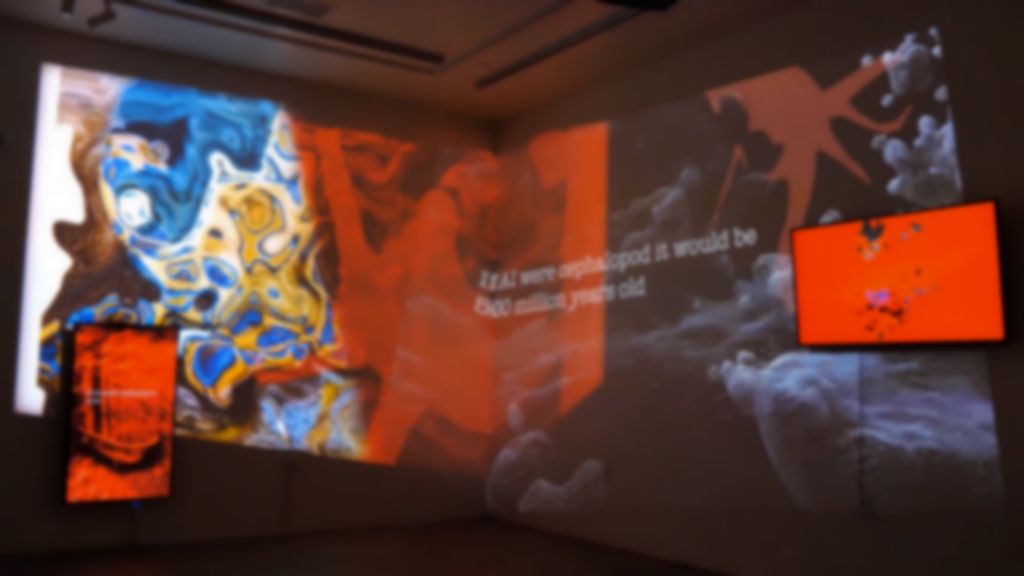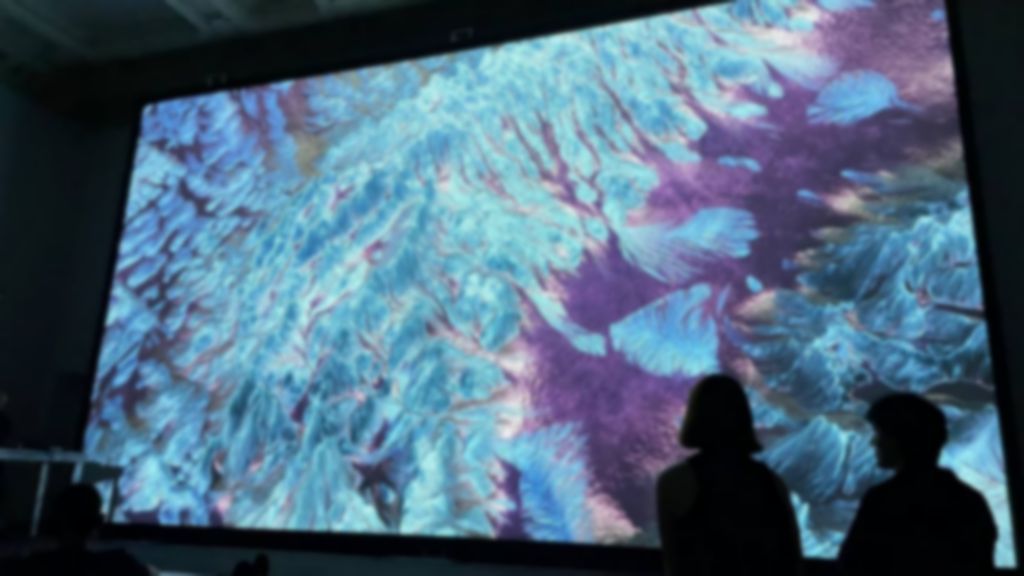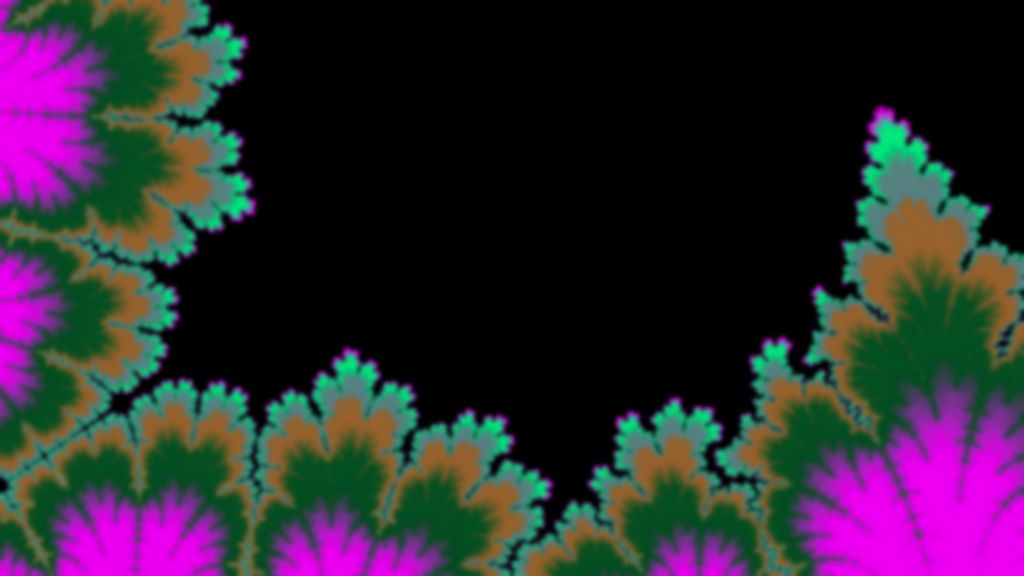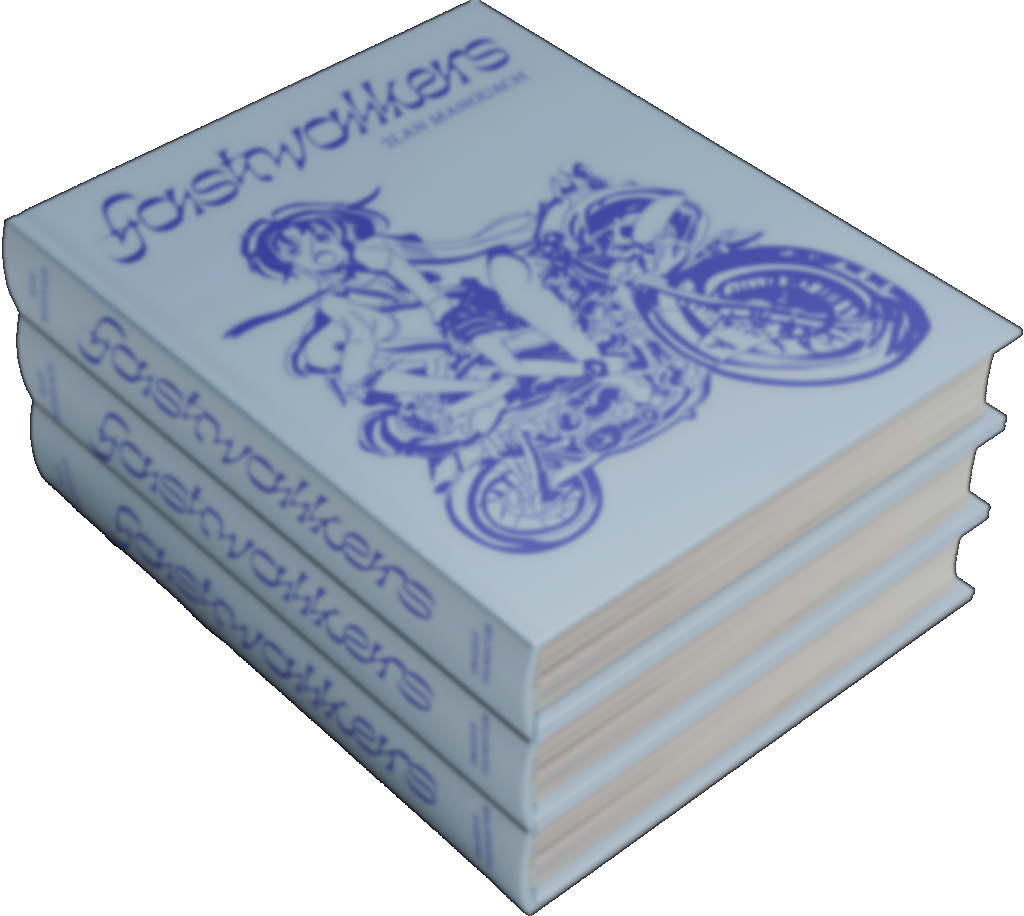
If AI Were Cephalopod
- GB / ZA / US
- 2019
- installation
- Hansen House exhibition
- 7'
The work presents a lot of questions about the formation of the notion of intelligence – where does the model of intelligence come from in relation to the development of AI – and what are the implications of those choices. The work ultimately suggest we may not know what we are doing in creating these systems… So, some of the texts suggest threat while others are more about unknowing, or advancing embodiment or sensuality as worthy aspects of intelligence. There should be a kind of mirror thing – where the work can be read as being directed at AI, or directed at the way human exceptionalism limits understanding of ourselves in relation to other life forms.
In thinking about an octopus-like AI having the ability to surveil and implement predictive analytics, we are rather inspired by a generative adversarial neural net ‘reinforced’ learning model whereby the AI/algorithm learns from its environment rather than learns to match data input with a sociopolitical analytic agenda i.e., our imagining into the octopus’s distributed consciousness is underpinned by a desire to resist the evolution of AI as a surveilling and predictive modelling tool. Rather to embrace a plastic, opportunistic, fluid, protean otherness embodied by the octopus. The deliberate uncertainty of figure, ground, planes, frames and image relationships in the work is an attempt to give the viewer an embodied and perceptual experience that is fluid, unfixed and morphing.
0rphan Drift has explored the boundaries of machine and human vision, since its inception in London in 1994. The collective as avatar has taken diverse forms through the course of its career, sometimes changing personnel and artistic strategies in accordance with the changing exigencies of the time.
In its latest manifestation, 0rphan Drift considers Artificial Intelligence through the somatic tendencies of the octopus – as a distributed, many-minded consciousness. Inspired by embodied cognitive science and radical anthropology, their multiple channel installations suggest possibilities in expanding and inhabiting other systems of perception and proprioception. They combine video, animation and text with newer tools such as LIDAR scanning to suggest new spatial-temporal formations and ask what kind of bodies might be possible with these new coordinates. Currently they are working toward deepening their engagement in the field, involving direct encounters with cephalopods and collaborative explorations with Machine Learning engineers, VR designers and teuthologists.



